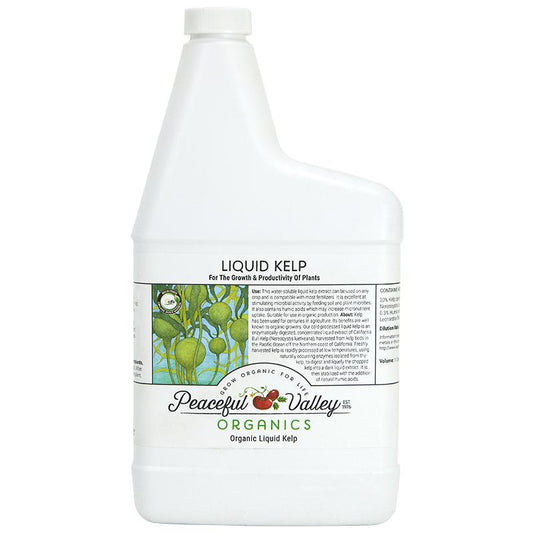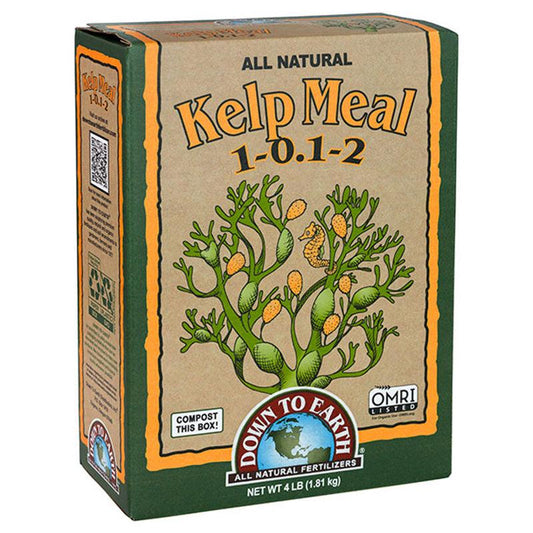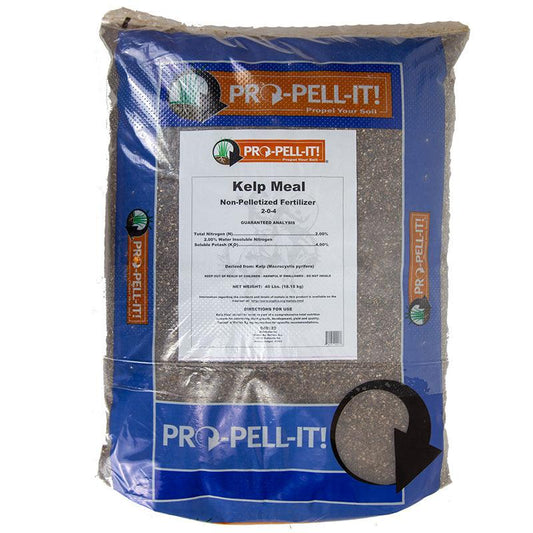Introduction
Kelp meal fertilizer is one of nature’s best all-around soil amendments, offering gardeners an environmentally friendly way to nourish plants and improve soil health.
Derived from dried and ground seaweed—most commonly Ascophyllum nodosum—this nutrient-rich fertilizer is packed with micro nutrients, trace minerals, and natural growth hormones that support balanced plant growth and soil vitality.
What Is Kelp Meal?
Kelp meal is made from brown seaweed harvested from cold ocean waters. It’s dried and milled into a fine powder or granules that can be added directly to soil or mixed into compost. Unlike synthetic fertilizers, kelp meal releases nutrients slowly, making it a gentle yet effective soil amendment for both garden beds and container plants.
Because it comes from the ocean, kelp naturally contains over 60 trace minerals such as magnesium, iron, zinc, and manganese. These essential elements work together to enhance nutrient absorption and overall soil structure without harming beneficial microbes.
Kelp Meal Fertilizer Benefits
1. Stimulates Healthy Growth
The growth hormones in kelp—such as cytokinins and auxins—enhance root development and encourage vigorous plant growth. Regular use of kelp meal for plants helps improve nutrient uptake and supports stronger stems and foliage.
2. Improves Soil Health
As a soil amendment, kelp meal enhances soil structure, moisture retention, and microbial activity. Over time, it transforms your soil into a living, fertile foundation. Explore more natural enhancers in our soil amendments collection.
3. Adds Essential Micro Nutrients and Trace Minerals
Kelp meal provides over 60 micro nutrients and trace minerals, helping prevent nutrient deficiencies that cause poor growth or yellow leaves.
4. Supports Resilience and Sustainability
The benefits of kelp extend beyond nutrition—it strengthens plants’ resistance to drought, frost, and pests while supporting environmentally friendly gardening. Because kelp is a renewable marine resource, it’s a sustainable choice for home gardens and farms.
How to Use Kelp Meal for Plants
You can apply kelp fertilizer in several easy ways:
- Top Dressing: Sprinkle about ¼ cup around each plant or 1–2 pounds per 100 square feet. Water well after application.
- Mixing into Soil: Blend into soil before planting to build long-term fertility.
- Composting: Add small amounts to compost to enrich it with minerals and nutrients. Learn more from our guide on how to make compost tea.
- Liquid Kelp or Foliar Spray: Apply diluted liquid kelp directly to leaves for a quick nutrient boost and improved nutrient absorption.
Pair it with our fertilizer and growing supplies for the best garden results.
Liquid Kelp and Foliar Spray Options
For a quicker boost, many gardeners turn to liquid kelp products. Liquid kelp can be diluted with water and applied as a soil drench or foliar spray, allowing plants to absorb nutrients directly through their leaves. This method is especially effective during periods of active growth or when plants show signs of nutrient deficiency.
A foliar spray made from liquid kelp also delivers a burst of growth hormones, stimulating cell division and helping plants recover from stress more efficiently. Whether used as a liquid or granular product, kelp fertilizer supports steady, balanced growth throughout the season.
A Sustainable Choice
Choosing kelp meal fertilizer aligns with eco-conscious gardening. Because it’s harvested responsibly from renewable ocean sources and minimally processed, it’s both effective and environmentally friendly. Whether you use it as a soil amendment, top dressing, or liquid kelp application, this versatile kelp fertilizer strengthens plants naturally—promoting healthier soil, stronger roots, and more abundant harvests.
Final Thoughts
Kelp meal is a nutrient-rich, organic fertilizer that enhances soil structure, boosts plant growth, and strengthens resilience naturally. Whether you use it as a top dressing, soil amendment, or foliar spray, you’ll enjoy the many kelp meal fertilizer benefits while supporting a more environmentally friendly garden.
Shop our premium kelp fertilizers to nourish your plants and soil the organic way.










